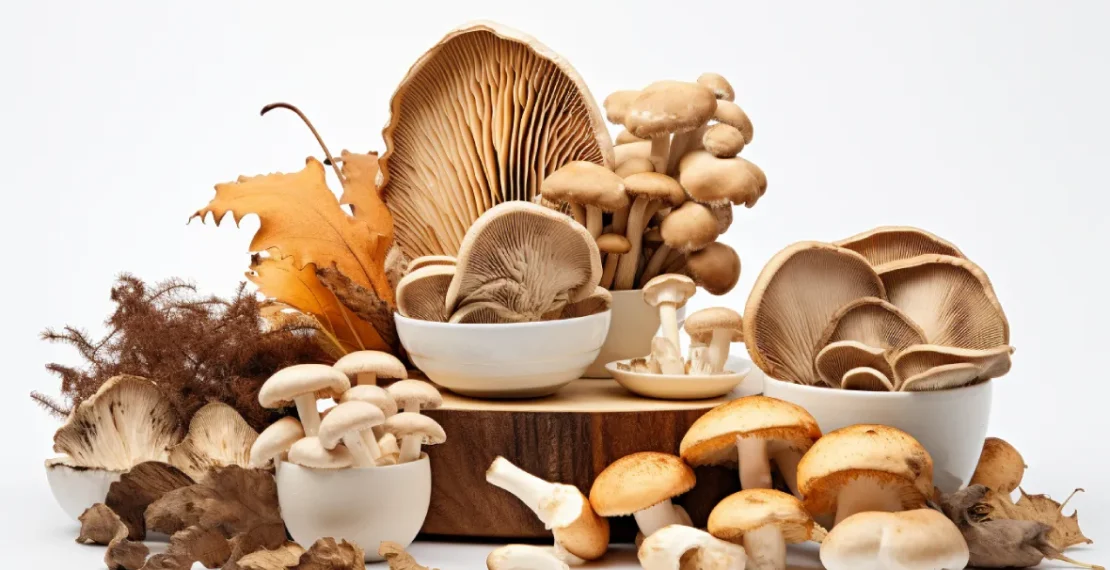Cannabis, CBD, Magic Mushrooms, Psilocybin
What Are Functional Mushrooms and How Do They Work?
In recent years, the wellness world has been buzzing with interest in functional mushrooms — a category of fungi celebrated for their potential to support the body and mind beyond basic nutrition. Unlike your typical button mushroom tossed into a salad, functional mushrooms have been used for centuries in traditional medicine systems like Traditional Chinese Medicine (TCM) and Ayurveda. Today, they’re finding new life in supplements, coffees, teas, and even skincare — but what exactly are they, and how do they work?
Defining Functional Mushrooms
Functional mushrooms are species of mushrooms that offer health benefits beyond their nutritional content. They’re not used for their culinary flavor or psychedelic effects, but for their ability to support the body’s natural functions — including immunity, cognition, energy, stress response, and more.
Some of the most commonly used functional mushrooms include:
- Lion’s Mane (Hericium erinaceus): Known for its nootropic properties, especially for focus and memory
- Reishi (Ganoderma lucidum): Often called the “mushroom of immortality,” linked to stress reduction and immune support
- Cordyceps (Cordyceps militaris/sinensis): Believed to enhance energy and stamina
- Chaga (Inonotus obliquus): Rich in antioxidants and used for immune health
- Turkey Tail (Trametes versicolor): Known for its immune-modulating properties
- Maitake and Shiitake: Often used for blood sugar support and overall immune enhancement
These mushrooms are available in dried, powdered, capsule, tincture, and extract form, and are often included in wellness products aimed at improving specific areas of health.
How Functional Mushrooms Work in the Body
The secret behind functional mushrooms lies in their bioactive compounds, which interact with various systems in the human body. Some of the most important compounds include:
1. Beta-Glucans
Beta-glucans are complex polysaccharides (sugars) found in the cell walls of mushrooms. These compounds are known to stimulate and modulate the immune system, enhancing the activity of macrophages and natural killer cells — the body’s first line of defense.
Unlike chemical stimulants, beta-glucans do not overstimulate the immune system but help balance it — making it more responsive when needed, and calmer when inflammation is too high.
2. Triterpenes
Found in mushrooms like Reishi, triterpenes are compounds that can have anti-inflammatory, antioxidant, and adaptogenic effects. They are believed to help regulate stress by influencing the endocrine and nervous systems, potentially supporting cortisol balance and relaxation.
3. Erinacines and Hericenones
Specific to Lion’s Mane mushrooms, these compounds are known for stimulating Nerve Growth Factor (NGF) — a protein crucial to the growth, maintenance, and survival of nerve cells. This is why Lion’s Mane is often used for cognitive support, memory, and mental clarity.
4. Cordycepin
Cordycepin, found in Cordyceps, mimics adenosine in the body and may help boost ATP production, leading to better oxygen utilization, increased endurance, and enhanced physical performance.
Adaptogens in Mushroom Form
Many functional mushrooms are also considered adaptogens — natural substances that help the body adapt to stress and restore balance. Adaptogenic mushrooms don’t target one specific organ or issue. Instead, they help the body maintain homeostasis, or internal stability, during times of physical, emotional, or environmental stress.
For example, Reishi and Cordyceps are commonly used to reduce fatigue, manage anxiety, and support the adrenal system. By helping the body respond more efficiently to stress, these mushrooms may contribute to long-term resilience and vitality.
The Science and Traditional Wisdom
While scientific research on functional mushrooms is still evolving, many studies support their benefits. For instance:
- Turkey Tail has been studied for its immune-enhancing polysaccharide compounds (PSK and PSP) and is even used in some countries alongside cancer treatments.
- Lion’s Mane has shown promise in improving mild cognitive impairment in clinical trials.
- Reishi and Chaga are being explored for their anti-inflammatory and antioxidant effects.
At the same time, functional mushrooms have been staples in traditional medicine for centuries, often used as tonics to enhance longevity, boost immunity, and strengthen the body’s defenses. In TCM, mushrooms like Reishi are known as “shen tonics” — believed to calm the spirit and strengthen the mind.
How to Use Functional Mushrooms
Functional mushrooms can be incorporated into your routine in several ways:
- Capsules or tablets for convenient daily dosing
- Powdered extracts to mix into smoothies, coffee, or tea
- Tinctures and liquid extracts for fast absorption
- Mushroom coffees or elixirs as an alternative to caffeine-heavy drinks
It’s important to choose high-quality, dual-extracted products (using both alcohol and hot water extraction) to ensure you’re getting the full spectrum of beneficial compounds. Also, consult a healthcare provider if you’re taking medications or have underlying health conditions.
Final Thoughts
Functional mushrooms are more than a wellness trend — they’re a bridge between ancient healing traditions and modern science. By supporting immunity, mental clarity, energy, and stress resilience, they offer a natural, holistic way to strengthen your body’s foundation for health.
Whether you’re navigating stress, looking to sharpen your focus, or want to support your immune system naturally, functional mushrooms can play a powerful role in your wellness routine — not with a quick fix, but with steady, long-term support.

